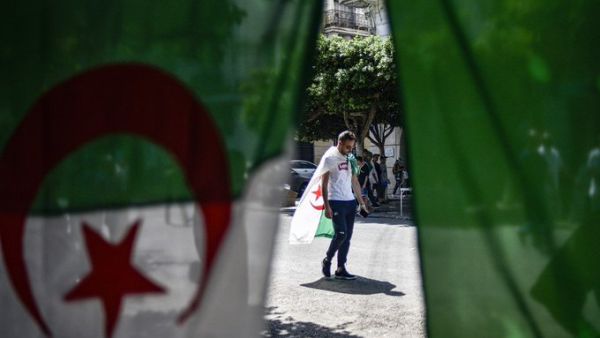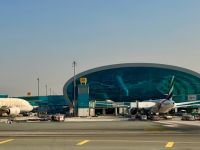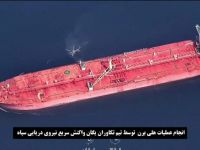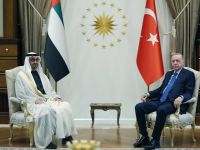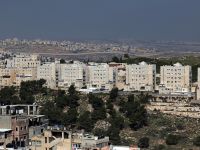Algeria’s revolt against French colonial rule was marked by a proclamation issued on November 1, 1954 which enshrined the principles of what would fast become one of the most historic revolutions of the post-1945 era.
It called for the “restoration of the sovereign Algerian state” which the French invader had destroyed in 1830. It asserted “democratic and social rights within the framework of Islamic principles,” as well as political pluralism and fundamental freedoms without distinction of race or religion. For all intents and purposes, that text is the constitution of the state that was reborn, after 132 years of foreign rule, on July 3, 1962.
Sixty-six years from that first proclamation, Algerian President Abdelmajid Tebboune is submitting the text of a new constitution to the Algerian people, which he trusts they will endorse. Its promoters, not least Army Chief of Staff Major General Said Chengriha, argue that the new constitution broadens and consolidates democracy in Africa’s largest country. Between 40% of voters, according to Tebboune’s supporters, and 10%, according to opponents, turned out to cast their ballots in the presidential elections that brought the new president to power in December 2019. How many will turn out on November 1 is anyone’s guess.
Algerian leaders have chosen to forget the lesson of history — that the lofty principles of November 1, 1954 were honoured in the breach from the very start. The National Liberation Army (ALN) led by Houari Boumediene and its secret service run by Abdelhafid Boussouf lured the civilian Abane Ramdane, considered by historians to have been the key political architect of the revolution, from Algeria to Morocco where, on December 27, 1957, he was brutally murdered. This assassination, followed by the short but brutal civil war which pitted, on its return to Algeria from Morocco and Tunisia in the summer of 1962, the well-equipped ALN troops against the guerrillas — which had fought a bloody war against French troops for eight years — set the future direction for Algerian politics.
The army and powerful security services remain the sole source of power and patronage for 42 million Algerians to which can be added senior civil servants, state companies and, more recently, a limited number of very rich private entrepreneurs whose strong links to the real power brokers grant them a measure of freedom in an otherwise tightly-controlled country.
On two occasions since 1962, the brittle and isolationist ruling caste has appeared willing to allow Algerians to have some say in shaping their country’s future. A group of reformists, initially backed by former President Chadli Bendjedid produced “Les Cahiers de la Reforme” in 1988. This was a bold blueprint for reforms that had become inevitable after the halving of the price of oil and gas — which to this day provides 95% of the country’s income and two thirds of its budget receipts, in 1985. It was written by Abderrahmane Hadj Nacer, who went on to become governor of the autonomous central bank from 1989 to 1992 and one of the key architect of the reforms.
Many senior officers reluctantly backed the reformers, only to withdraw their support when fast-track political liberalising nearly brought to power an Islamist party. European and American leaders looked with interest at the reforms enacted by former Algerian Prime Minister Mouloud Hamrouche from 1989-1991, but then French President Francois Mitterrand was not one of his well wishers. Indeed quite the reverse. There followed a bitter civil war which cost Algeria 100,000 dead, 17,000 disappeared, hundreds of thousands of skilled people fleeing the country and mass destruction.
Many observers convinced themselves that the election of Abdelaziz Bouteflika to the Algerian presidency in 1999 would usher in a happier phase in the country’s history. They conveniently forgot that the former foreign minister deeply resented not being chosen as Boumediene’s successor decades earlier. His years of exile turned him into a bitter man who was determined to destroy the power of the army chiefs who had anointed him. Over the next twenty years, helped by a huge oil bonanza, Bouteflika destroyed the integrity of the army by appointing a chief of staff, General Ahmed Gaid Salah, whom his peers despised. He compromised the integrity and professional grit of major state companies, not least the oil monopoly Sonatrach by appointing a man, Chakib Khelil, who, for ten years set about corrupting what had been a reputable international company. In 2015, he managed to get rid of General Mohamed “Toufik” Mediene, who had run the security services for twenty five years.
A system which was passably corrupt in 1999 had, by 2019, when a very sick Bouteflika sought a fifth mandate, turned into a kleptocracy. A country once proud of its diplomatic service and its influence in regional affairs had lost its voice and failed to have any influence on Libyan affairs. Cronies of the president paraded as entrepreneurs in world forums. The country which was a proud leader of the Third World in the 1960s and 1970s and had played a key role in freeing US diplomats held hostage in Tehran in 1981 had, de facto, disappeared from the world stage. During Boumediene’s presidency, Algerians could take pride in building a new country, in educating their people and in building an industrial base. Boumediene allowed the security forces free rein but controlled the army tightly.
After nearly one year of peaceful demonstrations – known as the Hirak — the army and security forces have, with the help of the COVID-19 pandemic, clamped down on dissent and freedom of expression more harshly than ever. The witty slogans of young people keen to speak out and engage with the world have disappeared, for now. Endless trials for corruption against members of Bouteflika’s clan, including his brother, two former prime ministers and countless cronies and generals, will, the president argues, clean out corruption for good and set Algeria on a new path. For the average Algerian, however, the trials look like score settling. The consequence is that private business and state sector managers live in fear of making any decisions. The due process of law has all but disappeared. The economy is flat.
The army is on the front line, displaying itself daily on television with a truculence previously unheard of. Having rattled on for so long in a meaningless, vacuous, monotonous idiom, the Algerian regime has ended up splendidly isolated, cloistered, out of touch, with no one left to chat to but itself.
This article has been adapted from its original source.


